|
|
|
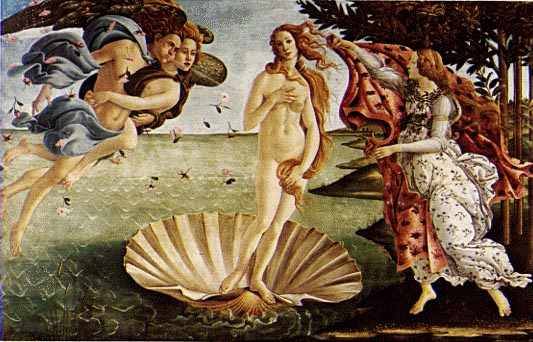
Greek Myths, Histories and Mysteries
![]()
The Greek deities, while not in full worship in the true
sense of the word have remained a part of our culture and teachings for centuries even after formal practice was
considered non-existent. Still in such ways they have lived, and could never truly die as long as people have believed
in their existence. Our hope for others is to help bring understanding and insight to how things that change remain
very much still the same. Meaning that if one looks for it one will see a pattern emerge from our distant past
that is like a road to connect us not only into our pasts but also into ourselves. From all the contents on this
site along with one's own personal views and knowledge one may be able to form a comfortable medium and make connections
to how everything is webbed together in the strands of eternity. There is a method to all this madness. Nothing
here is conclusive and much of the evidence is presented here in a fashion for the reader to make his own and to
ask questions. There is much discussed about myths, they are important because they take us closer to the world
and lives of the gods and goddesses, the forces of Life and Death, the powers of the Earth and the great Sky and
beyond.. We also have included as much history as we could work in because it is part of the elixir that makes
everything so intruiging. You will notice we have added many pieces of actual literature and poetry about the Greeks
and their pantheon from varied periods of history. We hope you find them to also add a bit of spice. We have included
theories from Freud and Jung and others that we may not necessarily agree with but feel the readers should be aware
of. The truth is out there and can be found by those whom truly dare. When there is need there is magick, and so
it is with divinity as well as myths.
Gods and Goddesses alike are still very much among us. They are a great part of our every day lives and thinking.
Random thought caught: 
By: Jennifer H. Wright
Modern day worship of the Greek pantheon to me contains many of the same elements as it did in days gone past. I have found that a person very much like myself is very out of place in this modern age. I refuse to deny myself my true being for it only complicates my life further. I have been given a gift of being an oracle. It may seem odd in this era for me even to say as such, but consider if such a thing was possible in days gone surely it would be so today. I encourage all to pursue their own personal paths whatever they may be and to follow their hearts and to chase your dreams - Do not let them escape you. Life is meant for living and enjoying whenever we can, so take the time to sniff the flowers and meditate upon your world and reach to go farther in every endeavor. No matter who you are it is your life and ultimately you have control over it, if you do not then it is not your life anymore and something should be done to rectify that.
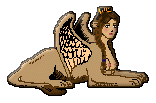
This place is under constant construction and care. Thanks in advance for understanding if things seem out of order
or incomplete from time to time.. : )
*
Joseph Campbell
"It would not be too much to say that myth is
the secret opening through which the inhaustible energies of the cosmos pour into human cultural manifestation.
Religions, philosophies, arts, the social forms of primitive and historic man, prime discoveries in science and
technology, the very dreams that blister sleep, boil up from the basic, magic ring of myth."
![]()
Our Greek Heritage
Ancient Greek civilization had died at 325 A.D., when Constantine
founded Constantinople, and Christian Byzantine civilization began to replace the "pagan" Greek culture
in the eastern Mediterranean. Religious conquests have been occurring for as long as "religion" came
into existence. When the ancient Greece was gone it bequeathed a grand legacy to the nations of Europe and the
Near East. Every colony from Greece sent with them their art and thought into the cultural blood of the hinterland-into
Spain and Gaul, Etruria and Rome, Egypt and Palestine, Syria and Asia Minor, and all along the shores of the Black
Sea. Alexandria was the port of reshipment for ideas as well as products
: from the Museum and the Library the works and views of the Greek mystics,
philosophers, poets, and scientists were distributed through scholars and students into every city of the Mediterranean.
Rome adopted the Greek heritage in it's Hellenistic form: her playwrights adopted Menander and Philemon, her poets
imitated the models, measures, and themes of Alexandrian literature, her arts used Greek craftsmen and Greek forms,
her law absorbed the statutes of the Greek cities. Rome spread the Hellenic civilization through every extension
of it's power. The Byzantine Empire merged with Greek to Asiatic culture, and passed some of the inheritance to
the Near East and Slavic north. The Syrian Christians took the torch and gave it to the Arabs, who held it through
Africa to Spain. Byzantine, Moslem, and Jewish scholars translated the works of the Greeks masterpieces to Italy.
This in turn led to arousing the first philosophy of the Schoolmen and the Renaissance.
It can not be denied by anyone that Greece's spirit has blended into modern culture.
Excluding machinery, there is hardly anything within our
culture that can not be traced to having some origins in Greece! Geometry, arithmetic, anatomy, biology, physics,
history, ethics, politics, schools, gymnasiums, hygiene( all hail Hygiaea - goddess of Health), theology,
philanthropy, cynicism, stoicism, Epicureanism, idealism, plutocracy, democracy, tyranny,tragedy, comedy, poetry,
rhetoric.. these all are Greek words for cultural forms that seldom originated, but in many instances matured for
good or ill by the energy of the great Greeks.
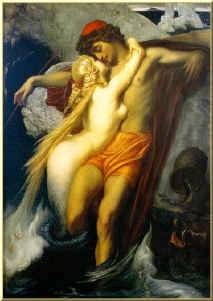
The pagan ideal of a shameless enjoyment of every sense, found their historic formulations in Greece. Christian practices and theology (the very words are Greek) stem in a large way from the mystery religions of Greece and Egypt, Orphic, Eleusian and Osiran rites. (The Greek doctrines of the divine son dying for mankind and resurrecting, Greek rituals of religious procession, ceremonial purification, holy sacrifice, and the sacred common meal, ideas of hell, demons, heaven, purgatory ) Also not surprising that superstition was a product of the Greek witches, curses, omens and unlucky days.

This is by far not all , the list goes on and on upon reading sections here you will continue to learn more from
our ancestors - their beliefs, ideals, religion and philosophy. Their spirit like their gods lives within our hearts
and collected memories and should be thanked for leaving us clues of a life that many of us may not have been aware
of but should be remembered. .....
Translation of the Famous Greek
War Song - By Lord Byron
Sons of the Greeks, arise!
The glorious hour's gone forth,
And, worthy of such ties
Display who gave us birth.
CHORUS
Sons of Greeks! let us go
In arms against the foe,
Till their hated blood shall flow
In a river past our feet.
Then manfully despising
The Turkish tyrant's yoke,
Let your country see you rising,
And all her chains are broke.
Brave shades of chiefs and sages,
Behold the coming strife!
Hellenes of past ages,
Oh, start again to life!
At the sound of my trumpet, breaking
Your sleep, oh, join with me!
And the seven-hill'd city seeking,
Fight, conquer, till we're free.
Sons of Greeks, &c.
Sparta, Sparta, why in slumbers
Lethargic dost thou lie?
Awake, and join thy numbers
With Athens, old ally!
Leonidas recalling,
That chief of ancient song,
Who saved ye once from falling,
The terrible! the strong!
Who made the bold diversion
In old Thermopylae,
And warring with the Persian
To keep his country free;
With his three hundred waging
The battle, long he stood,
And like a lion raging
Expired in seas of blood.
Sons of Greeks, &c.
The writers and founders of this site have no Greek blood
within them yet we are attracted to Hellas for although no religion or way of life is without flaw, to us it is
very appealing. As Pagans we believe in the existance and respect all gods and goddesses. We work with and worship
the Hellenic gods because in short we like them. :>
Having a great love and appreciation for ancient ways is a good place to start. This site is primarily dedicated
to Hellenic ones but we do not claim it is the only way and encourage all to embrace whatever calls to them.
There were essentially three elements in the Greek religion : Chthonian, Olympian, and Mystic. The first is thought possibly of Palasgo-Mycenaean origin, the second Achaeo-Dorian, the third Egypto-Asiatic. The first worshiped subterranean, the second Celestial and the mystics resurrected gods. Chthonian was popular among the poor, Olympian among the well to do and the third the lower middle class.
Greeks celebrated their religion through festivals and
oracles..Greeks believed that gods often spoke through Oracles, such as the Oracle of Apollo at Delphi, to help
humans understand the desires of the gods.Festivals were held to honor the Greek gods and goddesses. The dieities
were also a great part of the ancient Greeks everyday life as well.
The most famous was the Olympic Festival held every four years to honor Zeus.
No wars could be fought during the Festivals. Greeks also participated in Mystery Cults. A Greek mystery
was a secret ceremony in which sacred symbols were used with symbolic rites that were performed. Only initiates
were worshipers. Rites often represented and commemorated the suffering, death and resurrection of a deity.
The places of worship could be the domestic hearth, the municipal hearth in the city hall, some cleft in the earth for a chthonian deity or some temple for an Olympian god. The precincts of the temple were sacred and inviolable. It was a sanctuary even for those who had committed a serious crime. The temple was not for the congregation but it was for the deity, there in their home there would be a statue, and a light burned before it which was to always remain lit.
Would you accept a drink with lord Dionysus?
People would often wash and dress and tend to the likeness of the deity and at times scold it for times of neglect. It has been said that the statues would sweat, cry and close their eyes among other amazements. In the temple records a history was kept of major events in the life of the city or group that worshiped them and the festivals they held. This was the source and first form of Historiography.
Ceremonies have a procession and would include chants, sacrifices, prayers, and a sacred meal on some occasions. Magick and masquerade and dramatic representations could be part of the procession. Music was very important during the whole process.
The altar in most cases could be found in front of the
temple. this is where the worshipers would have sacrificed and prayed to avert the wrath or win the aid of the
gods and goddesses.
Offerings were often just about anything, statues, furniture, weapons, cauldrons, tripods, garments, pottery, reliefs.
Sometimes armies would offer part of their spoils. Groups of people would offer foods from harvest or an animal
appetizing to the god/goddess. It was not unknown that in times of great need they would commit human sacrifices.
Agamemnon offered
Iphigenia for a wind, Achilles slaughtered twelve Trojan youths of Cyprus and Leucas to satiate Apollo. Human sacrifices were also presented
to Dionysus in
Chios and Tenedos. The Spartans celebrated the festival of Artemis
Orthia by flogging youths, often to the death at her altar. In Arcadia
Zeus received
human sacrifices till the second century A.D.
The center of every city was the shrine of the city-god. Partaking in worship to the deity was the sign and privilege
and required of each citizen. Important crossroads of a persons life and death such as birth and marriage were
sanctified into sacred sacraments by ancient rituals before holy fires. Every place had its own special dedicated
god and or goddess. for example Athens has Athene, Eleusis - Demeter, Ephesus - Artemis, Samos - Hera, Poseidonia
- Poseidon. There was a sense of great pride amongst both Godkind and Mankind , when the city would march off to
war it carried the form and emblem of its god in the front-line of its troops. No important step in a battle would
commence without consulting divinity. A victory was the conquest of not only of a city by a city but of a god by
a god.
There is a story that at Massalia many a poor citizen was thrown of a cliff by his own people for their sins during
a time of pestilence. In Athens it was the custom that during times of crisis such as famine or plagues that the
citizens would offer to the gods in ritual mimicry or in actual fact one or more scapegoats for the purification
of the city. Thankfully over the passage of time this practice was no longer practiced anywhere. After the victims
were restricted to criminals that were dulled with wine, it was replaced with animal sacrifice and later symbolic
representations of animals in some cases.
A major step in the development of civilization was the animal sacrifice. Animals most often used were bulls, sheep and pigs. Only in sacrifice to the chthonian gods was everything surrendered to the deity, and the entire animal was burnt to ashes in a holocaust, the divinities of the lower world were more feared to the people than the Olympians. No common meal followed a chthonic sacrifice for they feared that the god would join them. The worshipers of the Olympians were the opposite where they would consecrate and consume the sacrifice after magick formulas pronounced over it had, they hoped, imbued it with the life and power of the god, which would pass mystically into the communicants. In a similar fashion wine was poured unto the sacrifice and then into the cups of the worshipers who drank with the gods.
Animal sacrifices were ended with Christianity, which substituted for it the spiritual and symbolic sacrifice in thier mass.
Greek rituals were as varied as the kinds of deities that
the people honored. No form of ceremony needed a clergy man; in fact it was the father of a family that acted as
priest, and the chief magistrate for the state. Religion played a major part everywhere and each government protected
the official cult as vital to the social order and political stability. In Greece the state dominated the priesthood,
took the leadership of religion and had reduced the clergy to minor functionaries in the temples. Priests were
the keepers of the sacred items, caretakers of the sanctuaries and leaders of the nomos (usage). The property
of the temples, in real estate, slaves, money, was audited and administered by officials of the state. There were
no seminaries for the training of priests, anyone could become one by being chosen or appointed if he knew the
rites of the god, in some places it was awarded to the highest bidder.There was no hierarchy of priestly caste;
the priests of a temple or state had no connection with those from
another. Large temples priesthood was subdivided into hiereus (priest) or hiereia (priestess) who looked after
the hiera (sacred things), , hydrophoroi (carriers of sacred water), manteis (prophets), auletes (musician, exegetai
(interpreters or expounders of sacred law), kleidoukhoi (key holders), spondophoroi (libation bearers), oinokhoos
(wine pourer), grammateus (scribe), rhabdophroi (peacekeepers at festivals) mageiros (sacrificer), neokoros (templecaretaker),
dadoukhos (torch bearers), hierokeryx (herald who announces the ritual), hierothytai (sacrificing priests), and
many more.
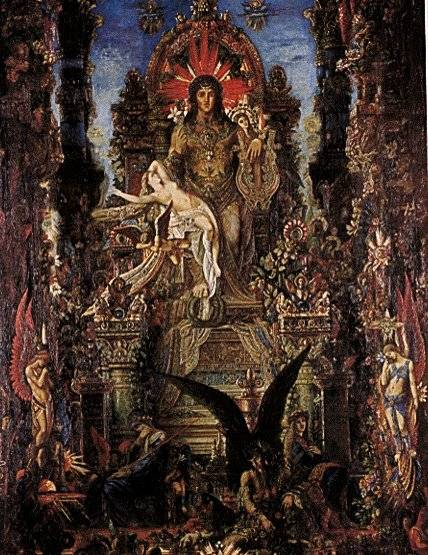
There were no churches, no orthodoxy, nor any rigid creed. Religion did not require that one had to profess certain
beliefs, but they did have to join in official rituals. Any man could have his own personal creed as long as it
did not insult or undermine the city's gods. In Greece the state and the church were indeed one.
. Greek religion reflected Greek ideals.Morality was only
remotely connected to religion.
Religion was not construed as "Saving" one from immorality. No special rules or list of commandments
existed. Temples were a place for gods to visit, not a place of worship.
Greeks believed that all souls (Shades) went to Tartarus.
Gods and humans were and are still both controlled by fate (Moria).If an individual became to arrogant (Hubris) they would receive divine retribution (Nemesis). Gods could be dwelt with on a personal
level and often visited humans in disguise. Gods have human characteristics with human desires and weaknesses (Anthropomorphism).
People are very wary of travelers for this very reason.. It is generally accepted as fact that there has never
been a religion as Anthropomorphic as the Greeks. Every object or force on Earth and the Sky, every blessing or
terror, every quality including the vices of man kind is personified as a deity (mostly human). Every craft, profession,
and art had it's divinity, or patron saint ; also not to mention there were demons, furies, gorgons, sirens, harpies,
sylphs, faeries, oceanids, nereids, nymphs ect and so on.. that are almost as numerous as all the mortals on Earth!
There is a lot of ground to cover with all the inventory of deities and magickal creatures.
As Hesiod
has said, " The names of all of them, it were
troublesome for a mortal man to tell."
Greeks had certain expectations from their religion including; explanation of natural forces of the physical world
such as lightning, thunder and rough seas.
Explanation of the passions which made humans lose confidence or control.
Provided a way by which humans could gain fortunes or benefits.
Ode on a Grecian Urn
By: John Keats
I
Thou still unravish'd bride of quietness,
Thou foster-child of silence and slow time,
Sylvan historian, who canst thus express
A flowery tale more sweetly than our rhyme:
What leaf-fring'd legend haunts about thy shape
Of deities or mortals, or of both,
In Tempe or the dales of Arcady?
What men or gods are these? What maidens loth?
What mad pursuit? What struggle to escape?
What pipes and timbrels? What wild ecstasy?
II.
Heard melodies are sweet, but those unheard
Are sweeter; therefore, ye soft pipes, play on;
Not to the sensual ear, but, more endear'd,
Pipe to the spirit ditties of no tone:
Fair youth, beneath the trees, thou canst not leave
Thy song, nor ever can those trees be bare;
Bold Lover, never, never canst thou kiss,
Though winning near the goal--yet, do not grieve;
She cannot fade, though thou has not thy bliss,
For ever wilt thou love, and she be fair!
III.
Ah, happy, happy boughs! that cannot shed
Your leaves, nor ever bid the Spring adieu;
And, happy melodist, unwearied,
For ever piping songs for ever new;
More happy love! more happy, happy love!
For ever warn and still to be enjoyed,
For ever panting, and for ever young;
All breathing human passion far above,
That leaves a heart high-sorrowful and cloy'd,
A burning forehead, and a parching tongue.
IV.
Who are these coming to the sacrifice?
To what green altar, O mysterious priest,
Lead'st thou that heifer lowing at the skies,
And all her silken flanks with garlands drest?
What little town by river or sea shore,
Or mountain-built with peaceful citadel,
Is emptied of this folk, this pious morn?
And, little town, thy streets for evermore
Will silent be; and not a soul to tell
Why thou art desolate, can e'er return.
V.
O Attic shape! Fair attitude! with brede
Of marble men and maidens overwrought,
With forest branches and the trodden weed;
Thou, silent form, dost tease us out of thought
As doth eternity: Cold Pastoral!
When old age shall this generation waste,
Thou shalt remain, in midst of other woe
Than ours, a friend to man, to whom thou say'st,
`Beauty is truth, truth beauty,' -- that is all
Ye know on earth, and all ye need to know.
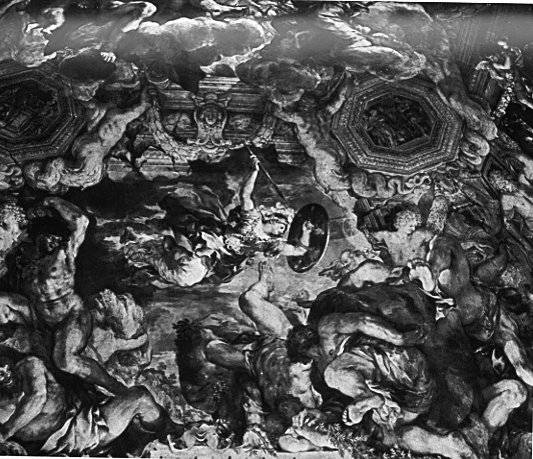
The Greeks & their gods
One of the appealing features of ancient Greece is the open worship that it contained. Public temples had been erected everywhere, from the Grecian countryside to the great cities. In her prime it must have been a great marvel to behold. The great Mother and Father of creation in myth have born many children and grandchildren and as with the ages many new men and women have also been born. The difference between men and gods is flesh, our mortal bodies succumb to physical sensations. The lords and ladies astral bodies function much differently and suffer and feel pleasure on a different plane. Yet they are not alien to us, and in fact we are both part of each other.Therefore we can channel each others energies and feel one another among other things. This is an important link to the discovery of Magick. Another difference between our species is how we age and how we achieve immortality. We both live, die differently. The stronger gods outshine the other stars in the pantheon. The more well known ones are the Olympians but they are by far not the only ones whom possess great force and sway and love with humankind. Godkind and Mankind need each other in order to reach their fullest potential.
Pindar Olympian
For Diagoras of Rhodes, Boxing-Match, 464 B. C.
As when someone takes a goblet, all golden, the most
prized of his possessions, foaming with the dew of the vine from a generous hand, and makes a gift of it to his
young son-in-law, welcoming him with a toast from one home to another, honoring the grace of the
symposium and the new marriage-bond, and thereby, in the presence of his friends, makes him enviable for his harmonious
marriage-bed;
I too, sending to victorious men poured nectar, the gift of the Muses, the sweet fruit of my mind, I try to win
the gods' favor for those men who were victors at Olympia and at Pytho. That man is prosperous, who is encompassed
by good reports. Grace, which causes life to flourish, looks with favor now on one man, now on another, with both
the sweet-singing lyre and the full-voiced notes of flutes.
And now, with the music of flute and lyre alike I have come to land with Diagoras, singing the sea-child of Aphrodite
and bride of Helios, Rhodes, so that I may praise this straight-fighting, tremendous man who had himself crowned
beside the Alpheus and near Castalia, as a recompense for his boxing, and also his father Damagetus, a man pleasing
to Justice, living on the island of three cities near the foreland of spacious Asia, among Argive spearmen.
I shall want to proclaim my message for them, the widely powerful race of Heracles, and tell correctly from the
beginning, from Tlepolemus, the story that concerns all. For, on the father's side, they boast descent from Zeus,
while, on the mother's, they are decendants of Amyntor, through Astydameia. But around the minds of men countless
errors loom; and this is impossible to discover:
what is best to happen to a man, now and in the end. For indeed, striking Licymnius, the bastard brother of Alcmena,
with a staff of hard olive-wood as he came out of the chamber of Midea, the founder of this land once killed that
man, in anger. Disturbances of the mind lead astray even a wise man. Tlepolemus went and sought the god's oracle.
To him the golden-haired god spoke, from his fragrant sanctuary, of a voyage by ship from the shore of Lerna straight
to the pasture land with sea all around it, where once the great king of the gods showered the city with golden
snow,when, by the skills of Hephaestus with the bronze-forged hatchet, Athena leapt from the top of her father's
head and cried aloud with a mighty shout. The Sky and mother Earth shuddered before her.
Then even the god that brings light to mortals, son of Hyperion, enjoined his dear children to observe the obligation
that was soon to be due: that they should be the first to build for the goddess an altar visible to all men, and
by founding a sacred burnt-offering warm the spirit of the father and of the daughter who thunders with her spear.
She who casts excellence and joys into men is the daughter of Forethought, Reverence.
Truly, a cloud of forgetfulness sometimes descends unexpectedly, and draws the straight path of action away from
the mind. For they climbed the hill without bringing the seed of burning flame; and they established the sacred
precinct on the acropolis with fireless
sacrifices. Zeus brought to them a yellow cloud and rained on them abundant gold. And the gray-eyed goddess herself
bestowed on them every art, so that they surpassed all mortal men as the best workers with their hands; and the
roads bore works of art like living, moving creatures, and their fame was profound. For a wise craftsman, even
superior skill is free from guile. The ancient stories of men tell that when Zeus and the immortals were dividing
the earth among them, Rhodes was not yet visible in the expanse of the sea, but the island was hidden in the salty
depths.
Helios was absent, and no one marked out a share for him; in fact they left him without any allotment of land,
although he was a holy god. And when Helios mentioned it, Zeus was about to order a new casting of lots, but Helios
did not allow him. For he said that he himself saw in the gray sea, growing from the bottom, a rich, productive
land for men, and a kindly one for flocks.
And he bid Lachesis of the golden headband raise her hands right away, and speak,correctly and earnestly, the great
oath of the gods, and consent with the son of Cronus that that island, when it had risen into the shining air,
should thereafter be his own prize of honor.and the essence of his words was fulfilled and turned out to be true.
There grew from the waters of the sea an island, which is held by the birthgiving father of piercing rays, the
ruler of fire-breathing horses. And there he once lay with Rhodes, and begat seven sons who
inherited from him the wisest minds in the time of earlier men; and of these one begat Cameirus, and Ialysus the
eldest, and Lindus. Each had his own separate share of cities in their threefold division of their father's land,
and their dwelling-places were named after them.
There it is that a sweet recompense for his pitiful misfortune is established for Tlepolemus, the first leader
of the Tirynthians, as for a god: a procession of flocks for burnt sacrifice and the trial of contests. With the
flowers from these Diagoras has had himself crowned twice, and at the renowned Isthmus four times, in his good
fortune, and again and again at Nemea and in rocky Athens; and the prizes of the bronze shield in Argos and the
works of art in Arcadia and Thebes are familiar with him, and the duly ordered contests of the Boeotians, and Pellana
and Aegina, where he was six times victor. And in Megara the list carved in stone gives no other account. But,
Father Zeus, you who rule over the ridges of Atabyrium, grant honor to the
hymn ordained in praise of an Olympian victor, and to the man who has found excellence as a boxer, and grant to
him honored grace in
the eyes of both citizens and strangers. For he walks a straight course on a road that hates arrogance, knowing
clearly the sound prophetic wisdom of his good ancestors. Do not bury in obscurity the shared seed Callianax. When
the Eratidae are graced with victories, the city too holds festivities; but in a single space of apportioned time
the winds shift quickly from moment to moment.